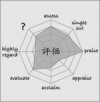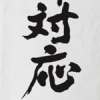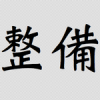Swet Columns
Japanese and English express ideas in different ways, as every translator is regularly reminded, and ensuring natural output sometimes requires a little reflection. This column offers a record of grapples with thorny words and phrases.
December 15, 2017
Word Wise: Making Assessments
評価 Hyōka
By Richard Medhurst
Japanese words with distinct, similar meanings can be troublesome. This is especially true when they have small but crucial differences. The primary dictionary definitions of 評価 tell us that this word is used to decide the value of something or someone. This suggests English words like to “assess” or “evaluate.” With 専門家の評価, we have an expert’s “appraisal” or... more
August 15, 2017
Word Wise: Focusing on Translation
を中心に o chūshin ni
By Richard Medhurst
When choosing how to translate を中心に, there are two basic sets of options I regularly consider. If a product is described as 女性を中心に人気, this could be translated as “particularly popular with women,” “mainly popular,” “especially popular,” “primarily popular,” and so on. On the other hand, I may render研究課題を中心に, as “focused on research issues,” or “centred... more
June 5, 2017
Word Wise: Deal With It
対応 Taiō
By Richard Medhurst Translators are constantly dealing with work assignments. Many of them contain the word 対応, which itself could be translated as “deal with” or “handle.” In this sense of an action with an object, 対応 also commonly becomes “respond” or “response.” The first suggestions seem in general to be an easier fit for ongoing situations, like “dealing with customers”... more
April 5, 2017
Word Wise: Baffling by Design
整備 Seibi
By Richard Medhurst
There’s a Japanese Wikipedia article on 整備文, a term devised by Canadian author Iain Arthy to refer to the obfuscatory language deployed by elites in his book Oeragata no Nihongojuku 『政・官・財(おえらがた)の日本語塾』(1996). It singles out words like 検討, 施設, and 等 for sapping readers’ will to understand. But the word he chose... more
January 31, 2017
Word Wise: Get a Grip
把握 Haaku
By Richard Medhurst
Some words look straightforward enough in the context of a Japanese sentence, but are not always easy to translate. Take 把握, consisting of two kanji meaning to “grip” or “grasp.” This latter word, “grasp,” is a common J-E dictionary entry for 把握 as it has the same connection with physically holding and mentally knowing, but it has... more
December 1, 2016
Word Wise: More You, But in a Good Way
らしい Rashii
By Richard Medhurst
When people advise “be yourself,” they certainly don’t want you to follow your worst instincts. The aim is to become more “you” in a good way, fulfilling the potential within you. There is a similar aspirational idea in 自分らしい in Japanese. You are “like yourself” in a positive manner. It is one of many らしい phrases where... more






